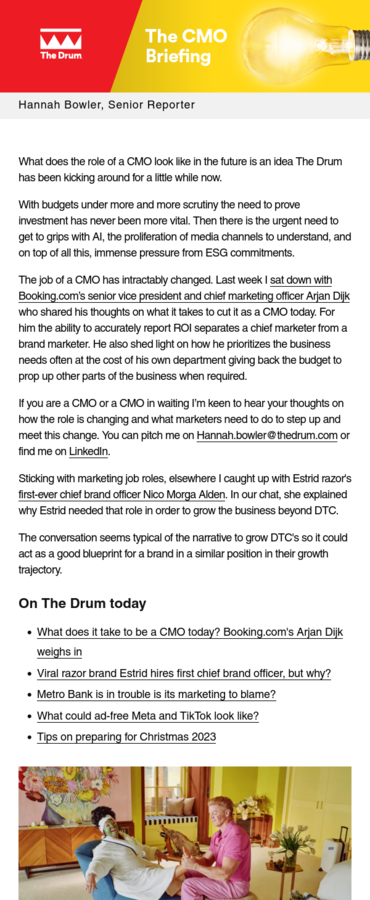Top experts on the FTC’s proposed ban on non-competes: ‘adland will loathe it’
Will a wholesale ban on non-compete clauses force the hands of ad agencies and marketing businesses everywhere? Experts weigh in.

Noncompete contracts everywhere could soon become relics of the past / Adobe Stock
The US Federal Trade Commission (FTC) on January 5 rolled out a new proposal to ban non-compete agreements between employers and workers worldwide.
While the rule remains a proposal with no guarantee of being adopted, businesses and lawyers across the country have begun evaluating how such a ban could impact talent acquisition and retention, pay structures and more. Commercial litigator Maryann Stallone penned an op-ed for The Drum this week arguing: “The proposed rule does not consider the potential harm to employers – many of whom have made substantial investments in developing their client base and protecting their confidential information – if key employees were to leave and misappropriate client goodwill and confidential information to benefit competitors.”
Now, the advertising industry – which has historically prized the non-compete agreement – is reacting. Here’s what five industry leaders say about how the rule, if enacted, would impact adland.
Advertisement
Margo Kahnrose, chief marketing officer at Skai, an omnichannel marketing platform: The ad industry tends to be understandably loath to change practices that affect the power dynamics among its biggest players, as evidenced by recent shake-ups in adtech around issues like antitrust and consumer data privacy.
A non-compete ban will be met with similar resistance; however, ultimately it will force a more fair value exchange between employees and employers based on trust, which tends to be a more even-sided contract than handcuffs.
Though there are certainly nuances, agreements that inhibit creativity, opportunity or innovation often stand in the way of progress. With a ban on non-competes, the onus will be on individual employers to incentivize, versus force their top recruits against sharing trade secrets – and on employees to operate with integrity, knowing that in a relatively small, interwoven industry, reputation is everything.
Advertisement
Shiv Gupta, managing partner at U of Digital, a digital marketing education firm: The ad industry is already heavily conflicted and incestuous. Regardless of non-competes, people and IP move somewhat freely across the space. That’s why we have so many companies that look and sound the same (see: the Lumascape). Do non-competes prevent this from happening? Maybe a little bit, but clearly not enough. I don’t expect this to have a major impact on adland.
Marc Yudkin, global chief operating officer and general counsel at media agency VaynerX: I believe the FTC’s proposed ban on non-compete agreements is consistent with our current and historical perspective relating to employees’ ability to work in the marketplace. Specifically, at VaynerX, we’ve always been aligned with this approach and have not required our employees to agree to the type of restrictive covenant that the FTC is proposing to ban. We have promoted, and will continue to promote, a free, competitive environment that doesn’t restrict employees seeking jobs in the industry – so long as essential trade secrets and other confidential and proprietary information is protected in a reasonable manner.
Suggested newsletters for you
Jay Wilson, vice-president analyst, marketing practice at Gartner: A restriction on non-compete agreements would benefit agencies and clients alike, by forcing agencies to take one more step to a more human-centric approach to the workplace and talent management.
Gartner research shows that human-centric work design, including flexible work experiences and empathy-based management approaches, result in a 3.8-times higher likelihood of high employee performance, a 3.2-times higher likelihood of employee intent to stay and a 3.1-times higher likelihood of lower employee fatigue.
This addresses critical challenges that agencies have faced for decades – client demand for high performance, agency employee burnout and subsequent employee turnover – a common factor that triggers agency reviews.
While non-competes typically apply only to senior level agency staff, these agency leaders also benefit from human-centric work principles and – especially in the world of marketing, which fosters a culture of entrepreneurism and networking – lifting restrictive non-compete agreements should foster these attributes and drive agency performance at the most senior levels.
Simon Jefferson, managing partner at ad agency AKQA: It doesn’t affect us in San Francisco and Los Angeles, as [non-competes are] already not enforceable under California law.
Andrew Graham, founder and head of strategy at Bread & Law, a New York-based PR firm: I endorse a ban on non-competes because I endorse policies and regulations that restore power back where it belongs: with labor.
Employees generally aren’t directly compensated for agreeing to non-competes and employers generally have a tough time showing a legitimate interest to protect. Also, it seems to me that, depending on their language, there can be ways to comply with their language without complying with their intention. This all makes non-competes pretty easy to either waive away or defeat if you’re somebody who already has a bunch of power and leverage in your industry. They just don't do anything in most situations.
What I think the FTC’s proposed ban on non-competes would do, if enacted, is provide more peace of mind to those members of the workforce who’ve historically lacked that power. It wouldn’t alone eliminate the threat of litigation for folks looking to make career changes in relationship-based businesses like communications and advertising, but it certainly would send a signal to employers. It’d also send a positive signal to professionals who might want to explore going freelance or becoming entrepreneurial.
I don’t know that there are a ton of people out there in the ad world arguing that words in employment contracts can replace inclusive cultures and adequate compensation, but to the extent that's still a belief held anywhere, the FTC could set the record straight.
For more, sign up for The Drum’s daily US newsletter here.


